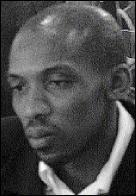Gareth Manning, Staff Reporter

Jason Morris - file
JAMAICA IS taking a wait-and-see approach to the current financial crisis now affecting the economy of the United States.
It is uncertain how long the 'storm' will last as major financial institutions continue to crumble under the weight of a subprime mortgage disaster that has forced the US Government to craft a US$700 billion bailout plan for banks. Up to press time yesterday, the legislators were yet to approve the plan.
One of America's largest banks, Washington Mutual, was the latest casualty last week, as regulators moved in to close it down Thursday and sold its accounts and home loans to JP Morgan Chase for US$1.9 billion, according to reports.
nir sufficient
In a bid to ease anxiety here, Prime Minister Bruce Golding told representatives of the Jamaica-America business community in New York Thursday that the island's net international reserves (NIR) were sufficient to keep the economy afloat if a monetary crisis emerged. The NIR stands at approximately US$2.4 billion.
"It's like a hurricane going on and you're asking what the impact is going to be before it's over. Until the hurricane is finished, I really can't tell you," Jason Morris, senior investment strategist at Jamaica Money Market Brokers, tells The Sunday Gleaner.
Notwithstanding, Morris is clear that the local economy will not be spared a blow.
"Certainly, the economy is going to be distorted, but frankly, we don't know when the crisis is going to end," he adds.
The country's tourism, foreign exchange and remittance earnings are some obvious instruments that will feel the impact of the blow, but the extent of the damage will depend on the US's ultimate response to the crisis.
"If they pass a (bailout legislation) on returns and mortgages and people can borrow and lend again, then we would have more activity than what we had since the start of the year," reasons Morrison. "But if it is a watered-down bill that solves half the problem, then everything is going to be up in the air again."
becoming conservative
Banking lecturer at the University of Technology, Dr Neville Swaby, says the crisis is causing the US market to become conservative. The United Sates is Jamaica's closest and largest tourist market, accounting for in excess of one million stopover visitors in 2007.
"People may have to delay or cancel vacations in order to stay alive," he says.
Likewise, remittances are going to be hurt. "The financial crisis has resulted in losses of thousands of jobs in the US financial sector," he analyses. "Although it is not expected that a large majority of Jamaicans work there, (a reduction in remittances) will impact other areas such as construction, tourism and farming," Swaby adds.
gareth.manning@gleanerjm.com

